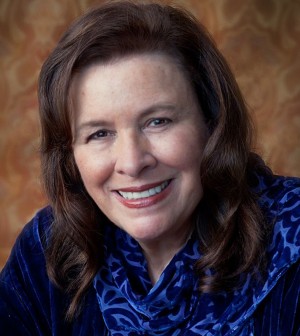- Finding Unshakable Power in a World That Wants to Pull Us ApartPosted 5 months ago
- What could a Donald Trump presidency mean for abortion rights?Posted 5 months ago
- Financial Empowerment: The Game-Changer for Women in Relationships and BeyondPosted 6 months ago
- Mental Health and Wellbeing Tips During and After PregnancyPosted 6 months ago
- Fall Renewal: Step outside your Comfort Zone & Experience Vibrant ChangePosted 6 months ago
- Women Entrepreneurs Need Support SystemsPosted 7 months ago
The Way Of Mindfulness With Paul McCartney, Richard Gere, Deepak Chopra And Jean Houston

By Ed and Deb Shapiro.
Mindfulness is a hot buzzword at the moment, furthered by TIME Magazine having The Mindful Revolution on its front cover. But what does mindfulness look like in practice? What difference does it make on a day-to-day basis? How does it change our lives?
These questions, and others focused on what is needed for people to transit into more positive and aware times, inspired us to ask a number of leading luminaries, which resulted in our book, The Way Ahead: A Visionary Perspective For The New Millennium.
Initially our purpose was to ask how could we have a better world, but it soon became a treatise of how to live with awareness and spirituality, how to make our lives an expression of wholeness. It became an illustration of mindfulness in action.
Mindfulness is primarily being aware of ourselves, such as our thoughts and feelings. In the process we also become aware of our limitations. Deepak Chopra reminds us to go beyond ourselves in order to find ourselves when he says:
“Remember, nothing you already know is going to free you. Getting beyond the mind’s boundaries is a more profound goal than the mind can grasp. If you begin this investigation into your deeper nature, you will find that real, lasting healing comes from just being yourself and watching what happens. If you have a sincere willingness, what will happen will be an inner unfolding; the tightly furled bud will open into a flower.”
Martin Luther King Jr. nominated the Vietnamese teacher Thich Nhat Hanh for the Nobel Peace Prize, but the real prize came in a very simple and direct way to make mindfulness a part of even the smallest of our interactions. Thich Nhat Hanh says:
“Every time the telephone rings we all stop and breathe in and out, saying, ‘Listen, listen. This wonderful sound brings me back to my true self.’ We call it telephone meditation! It is very easy to practice telephone meditation. When you hear the telephone, just stay where you are and breathe in and out consciously and smile. When you hear the second sound, you can breathe in and out again and enjoy the sound of the telephone. If the other person has something very important to tell you, he or she will wait for at least three rings. When you hear the third ring you continue breathing and are serene, so when you answer the phone you are calm and smiling. This is good for you and for the person who is calling!”
Mindfulness affects everything we do, not just answering the telephone, and this includes what we eat. Awareness of our world transforms our world and our behavior in it, as Paul McCartney makes us aware of:
“One day we were eating roast lamb. It was the lambing season so there were all these beautiful young lambs gamboling around the fields surrounding our house, running and playing together. We looked at the lambs playing and we looked at the lamb on our plates and we realized we were eating leg of lamb. We looked at them running around outside again and saw a leg of lamb running and playing. And that was it, the great turning point: if it has a face, don’t eat it!”
Mindfulness also extends us beyond ourselves into a recognition that we are not separate, not alone, but a part of everything, as Zen teacher Roshi Joan Halifax explains:
“When we plant a tree, we are planting ourselves. Releasing dolphins back to the wild, we are ourselves returning home. Composting leftovers, we are being reborn as irises and apples. We can ‘think like a mountain’ and discover ourselves to be everywhere and in everything and know the activity of the world as not separate from who we are but rather of what we are.”
That awareness enables us to make deep and profound changes. Actor Richard Gere emphasizes how the disquieting state of the world is actually the very grist we can use to transform ourselves and our world:
“The breakdown of the established social and political order over the last few years presents, ironically, an extraordinary opportunity to actualize the radical changes we all know must take place. If the cycles of conditioned violence and counter-violence can be avoided—or transformed—we may enter an age of responsibility and love for all beings.”
An age of responsibility and love is the greatest gift mindfulness gives us. And, as Jean Houston says, we are already there:
“I see a change. It is vested in the greatest rise in expectations the world has ever seen. It is so far-reaching in its implications that one might call it evolution consciously entering into time, the evolutionary potential asserting itself. It needed a certain critical mass, a certain merging of complexity, crisis, and consciousness to awaken. Now it is happening.”
How does mindfulness change your life? Do comment below.
 Ed and Deb are the co-founders, of RevolutionaryMindfulness.com, with Brian Jones. Join to get our newsletter, free meditation downloads, community support, and learn to balance your nervous system. They are the authors of award winning Be The Change, How Meditation can Transform You and the World. Deb is the author of Merging: Women in Love. See more at RevolutionaryMindfulness.com and EdandDebShapiro.com
Ed and Deb are the co-founders, of RevolutionaryMindfulness.com, with Brian Jones. Join to get our newsletter, free meditation downloads, community support, and learn to balance your nervous system. They are the authors of award winning Be The Change, How Meditation can Transform You and the World. Deb is the author of Merging: Women in Love. See more at RevolutionaryMindfulness.com and EdandDebShapiro.com






